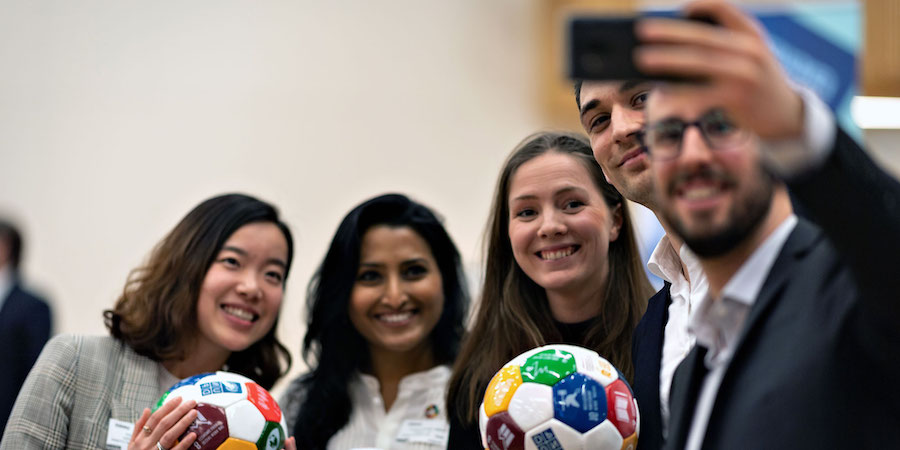Actively involve young professionals in the sustainability agenda!
Looking back, when I first organized the ‘Future Leaders Event’ in 2008, I already saw an incredible enthusiasm and commitment from young professionals to actively contribute to the major social issues.

Themes such as hunger, poverty, inequality, deforestation and climate change already worried the new generation of leaders at that time. Het Financieele Dagblad was the loyal media partner of this whirlwind one-day event and released a FD special every year. In five years, some 1.200 future leaders participated in the event. That gave a lot of energy and the hope that the new generation would do things differently. All those top talents who wanted to actively contribute to a more sustainable and fair society.
We are now more than a decade further. The Millennium Development Goals (MDGs) were replaced by the Sustainable Development Goals (SDGs) in 2015. Sustainable development is included in the business strategy of many listed companies. Board members and senior managers are increasingly being stimulated to achieve the sustainability objectives through financial incentives. The social and political pressure on the business community increased enormously. Legislation and regulations are becoming more stringent and institutional investors are increasingly critical following the non-financial performance of companies. Looking away is no longer possible. Today, top executives of companies are therefore explicitly expected to have a social and ethical antenna.
Therefore, you would expect that today’s generation of young professionals have an active role in the realization of the SDGs and the sustainability transitions that the business community will endure in the coming decade. Because in the areas of climate change, biodiversity, circularity and safeguarding human rights in the supply chain alone, the challenges are enormous. And from the perspective of leadership development, one might expect young top talents to master the world of sustainable development at an early stage of their careers in order to be prepared for future top positions.
But in recent years I have discovered – as Executive Team Coach of the Young Professionals Program (YPP) of Global Compact Network Netherlands – that this assumption is not self-evident. Let me put it even more bluntly, many young top talents are not actively involved in this strategic business agenda at all. Many YPP participants have not yet actively come into contact with the world of the SDGs and sustainable development within their company in their young careers. And that applies to many more future leaders who are now developing their careers within the Dutch business community.
And that is rather strange. Because when I look at the motivation and drive why all these young professionals sign up for the YPP and what motivates them, they are all passionate about making a difference and positive impact one by one. Contributing to a better world and working in a dynamic team with other top talents on concrete social projects. And preferably during and after the YPP start acting as a ‘change agent’ within their own organization.
My advice to the current generation of leaders is to think this over. Better understand what young talents are looking for. Engage with them in a deeper conversation. Harness the enormous potential, creativity and innovative power of future leaders in this important agenda. And to think about the competencies that the board members and (senior) managers of the near future must acquire. I am convinced that the YPP actively responds to this and contributes to this necessary competence development.
